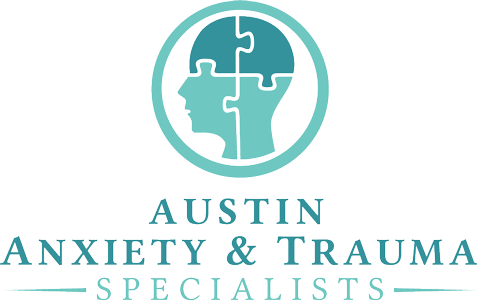Beyond The Blush: Your Toolkit For Coping With Social Anxiety
Imagine you’re invited to a friend’s birthday party. This might sound like a fun event—but for someone with social anxiety, it’s a whirlwind of stress. As the event approaches, you might be plagued with worries: “What if I say something stupid? What if no one talks to me? What if they all secretly hate me?” These thoughts can escalate, even leading to physical symptoms like sweating, trembling, a racing heart, or nausea. During the party, you might find yourself clinging to the corners, too afraid to engage, or rehearsing conversations in your head, only to end up saying nothing.
If you dread social interactions, you’re not alone. Social anxiety is a common challenge faced by many, yet it often remains misunderstood or misinterpreted as mere shyness. In this post, we will delve into what social anxiety truly is, how it manifests, its associated conditions, and practical resources to manage it.
Defining social anxiety
Social anxiety disorder, or social phobia, is a mental health condition characterized by an intense fear of being judged, negatively evaluated, or rejected in a social or performance situation. People with social anxiety often experience significant worry and distress in situations where they are exposed to possible scrutiny by others. This can range from speaking in public to simply eating or drinking in front of others.
While it is totally normal to feel nervous before social events, a person with social anxiety disorder will experience a level of stress and fear that is disproportionate to the situation. They also experience anxiety symptoms frequently and severely enough that it interferes with their daily life, including:
- Low self esteem
- A negative perception of social situations
- Ruminating thoughts over past, future, or potential social interactions
- Disassociation (depersonalization or derealization)
- Blushing, sweating, or chills
- Heart palpatations
- Nausea, dizziness, or diarrhea
- Trembling body, hands, or voice
- Difficulty breathing
Common situations that may trigger social anxiety symptoms can include:
- Interacting with new people, strangers, or authority figures
- Attending social gatherings, parties, or dates
- Speaking in public or being the focus of attention
- Performing tasks while observed
- Making phone calls
Social anxiety disorder can be debilitating—but it is possible to feel confident in social situations by learning to manage anxiety symptoms in therapy.
Coexisting mental health conditions
Social anxiety often does not exist in isolation. It frequently coexists with other mental health issues, which can complicate its experience and treatment.
- Depression
- Obsessive-Compulsive Disorder (OCD)
- Eating disorders
- Addiction disorders
- Attention Deficit Hyperactivity Disorder (ADHD)
- Other anxiety disorders
A therapist who understands your coexisting conditions can offer a more comprehensive approach to treating social anxiety. A multi-faceted treatment plan can address the symptoms of social anxiety, as well as the related conditions that might be contributing to or exacerbating it.
Social anxiety coping mechanisms, support, and treatment
Managing social anxiety is a journey, not a one-time fix. Coping strategies vary, but your therapist could recommend:
- Cognitive-behavioral therapy (CBT), a type of psychotherapy that helps individuals challenge and change negative thought patterns
- Mindfulness and relaxation techniques to reduce stress and anxiety symptoms
- Gradual exposure to feared social situations, starting small and gradually facing more challenging scenarios
- Medications can be effective, especially when combined with therapy
Tools for managing social anxiety
By reading this blog post, you’ve already begun taking brave steps on your healing journey. As anxiety specialists, we’d love to share with you our favorite blog resources on the topic of social anxiety. Continue your research with a deep dive into these blog posts we round up that we know you’ll find helpful when learning to cope with social anxiety disorder:
Navigating social situations
- When travel triggers anxiety: Dive into this guide to beat travel anxiety and prepare yourself for the social interactions that come with it.
- When you want to turn down an invite: Practice these statements to safeguard your time boundaries so you can quit saying “yes” just to make others happy.
- When you over-apologize: Get practical tips to stop apologizing every time your anxiety made you think you did something wrong.
- When your friends need emotional support: Listen to your friends like a therapist with this guide, so you’ll know just what to say in this social situation.
- When you need help: Follow this guide to building your social support system and learn how to ask for help (we know it can feel scary).
- When phone calls are scary: Put telephobia on hold with these tips to overcome a fear of making phone calls.
- When school makes you anxious: Understand back-to-school anxiety for students and parents and overcome your fears with these exercises.
Coping with social anxiety
- When social anxiety is wearing you down: Read this love letter to people pleasers for a little encouragement, empathy, and tips to feel better.
- When ruminating turns into an anxiety attack: Use these grounding techniques and breathing techniques to help relieve symptoms of anxiety attacks.
- When you need validation: Discover how to feel your feelings while challenging negative thoughts with emotional regulation—a life-changing skill for people with anxiety.
- When it feels like everyone hates you: Identify these common cognitive distortions that may be hurting your perception of your social interactions.
- When you’re not sure what you’re feeling: Try out these journaling techniques to relieve stress, improve mindfulness, and boost self-awareness.
- When you want to understand your emotions: Incorporate mindful practices in your daily life with these tips.
- When your self-esteem is hurt: Combat negative self-talk with self-compassion, following these steps.
Treating social anxiety
- When you have ADHD and social anxiety: Learn why the two often coexist and discover treatment options in this post.
- When you’re looking for convenient help: Check out this list of mobile apps that can help treat anxiety and depression.
- When you experience disassociation: Understand disassociation and explore treatment options for this social anxiety symptom in this blog.
- When you don’t think you need therapy: Learn how therapy can help even when you “feel fine” in this blog post.
- When you’re not sure if you have social anxiety: Use this checklist to determine if a diagnosis would be helpful for you or not.
- When you feel too socially anxious for therapy: Find out the benefits of virtual therapy, and how it may be a more comfortable option for you here.
These resources can be helpful for learning to cope with your symptoms, but they’re not a substitute for professional medical advice or prescribed treatment. If you’re seeking specialized support in managing social anxiety in Texas, book a virtual appointment with us at Austin Anxiety and Trauma Specialists. Our expertise in CBT and EMDR treatments for anxiety can help you regain control of your life. It can get better. We can help.






